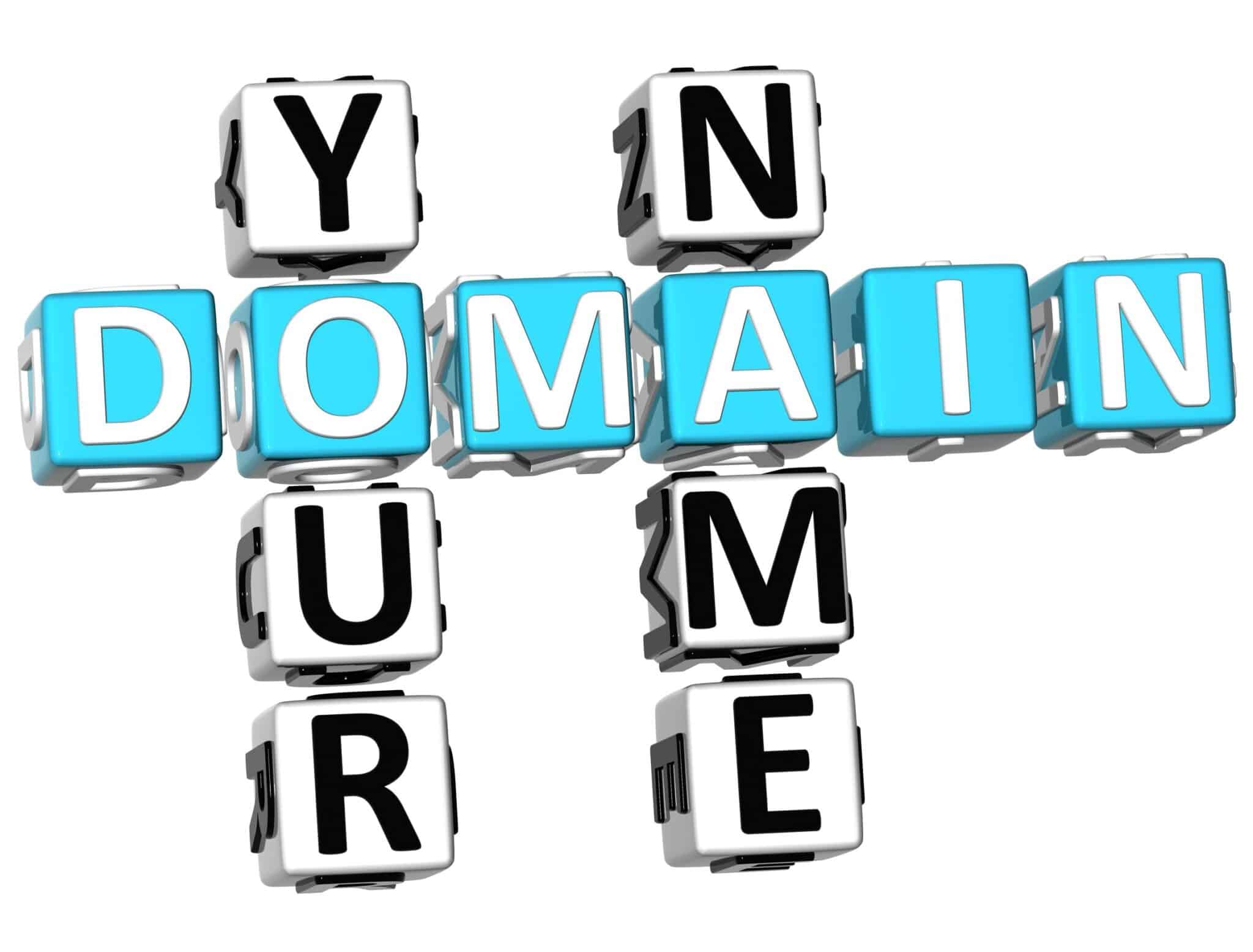How to Sell Domains
How To Sell Domains Selling domain names can be tough business! It’s important to do your research whether you are a seasoned domain investor with dozens of domain name assets on the market, or someone who has just one domain name to sell, it is a good idea to hire professionals whose job is to maximize your sales potential when selling domain names. Name Experts is an experienced domain listing and a domain broker, selling domain names for more than fifteen years. The prospect of engaging in domain name listing and sales can be rewarding and can also present some challenges. You might be sitting on a virtual goldmine with a domain name that’s worth several million dollars. For example, the domain ‘Voice.com’ was sold for big bucks—$30 million—showing just how profitable selling domains can be. Or you could be owning name assets that are worth pennies! The challenge is knowing your domain’s real value and educating the buyer about your domain’s worth quickly. Ensuring a smooth domain sale involves understanding legal considerations and avoiding pitfalls during the sale and transfer process. Using an escrow account during domain transactions is crucial to ensure secure money transfer and protect both parties. Additionally, always choose a trusted payment method to avoid scams and guarantee a safe transaction. Introduction to Domain Selling Domain selling is a dynamic and potentially lucrative business that revolves around buying and selling domain names for profit. Many domain sellers enter the domain market with the goal of flipping domains—acquiring them at a low price and selling them at a higher one. Whether you’re looking to make a full-time income or simply want to monetize unused domains, understanding the ins and outs of selling domains is essential. The process involves more than just listing a domain for sale; successful domain sellers know how to assess a domain’s value, select the right sales channel, and craft compelling listings that attract buyers. With the right approach and a solid grasp of the domain sales process, selling domain names can become a rewarding venture that generates consistent sales and maximizes the value of your digital assets. Introduction to Domain Selling Domain selling is a dynamic and potentially lucrative business that revolves around buying and selling domain names for profit. Many domain sellers enter the domain market with the goal of flipping domains—acquiring them at a low price and selling them at a higher one. Whether you’re looking to make a full-time income or simply want to monetize unused domains, understanding the ins and outs of selling domains is essential. The process involves more than just listing a domain for sale; successful domain sellers know how to assess a domain’s value, select the right sales channel, and craft compelling listings that attract buyers. With the right approach and a solid grasp of the domain sales process, selling domain names can become a rewarding venture that generates consistent sales and maximizes the value of your digital assets. Fair Market Value Finding the fair market value of your domain name is an important component to determining whether it may be worth selling the domain valuable asset. It’s essential to evaluate your domain’s unique features and market position to accurately determine its fair market value. Namebio.com is a great resource to understand what other domain names might be similar in nature and what they sold for. That may help determine a fair market comparison. Sellers are sometimes emotionally attached to the asset in question. As the domain name expert and broker, we are charged with the responsibility to set the clients expectation. We don’t believe in false promises and pride ourselves on our no-BS approach towards brokerage. Sellers should always identify their needs and set expectations with the broker. Domains should be realistically priced in a way that will be receptive to potential acquisition partners. Sellers must identify their goals and objectives. Are they selling the asset just to clear it off the board, or are they selling it because they don’t have a need for it any longer? Maybe the domain name is not for sale on auction site, for example, but someone made an offer? Here are a few questions to ask yourself to determine your intent to sell a domain name. How motivated are you to sell your domain name? Is your asset popular and relevant today? Do you receive unsolicited offers to acquire your domain name? Have you established pricing for the relevant asset(s)? Do you no longer have a use, or business-case for asset in question? Has any outbound marketing been done on your asset in question? Why are you selling now? Why do you think your name holds value? Understanding the Domain Market The domain market is a dynamic platform where sellers can sell their unused domains to potential buyers. It’s a competitive arena where domain names are bought and sold like commodities, with values fluctuating based on demand and market trends. The domain market operates by connecting sellers with potential buyers through various channels, such online tools such as auction sites, marketplaces, and domain brokers. What is the domain market? The domain market is a global marketplace where domain names are traded. It’s a platform where sellers can list their domains for sale, and potential buyers can browse and purchase domain directly from them. This market for top level domain name is a lucrative industry, with millions of domain names being bought and sold every year. Owners can leverage this market to find the right buyers for their domain names, ensuring they get the best possible price. How does the domain market work? The market works by connecting the owner with potential buyers through various channels. Sellers can list their domains on auction sites, marketplaces, and auctions or work with domain brokers to find potential buyers. Once a buyer shows interest in a domain’s name, the seller and potential buyer can start negotiating the price. To ensure a secure transaction, the sale is typically facilitated through an escrow service, which holds the funds until both interested parties can fulfill their obligations. Benefits of selling domains Selling domains can be a profitable venture for the owner. By selling their unused domains, owners can generate revenue and make a profit. Additionally, when you sell names you can de-clutter your portfolio and focus on more valuable domains. The market provides a platform for sellers to connect with potential buyers and sell their domains at a competitive price. Benefits of selling domains Selling domains can be a profitable venture for the owner. By selling their unused domains, owners can generate revenue and make a profit. Additionally, when you sell names you can de-clutter your portfolio and focus on more valuable domains. The market provides a platform for sellers to connect with potential buyers and sell their domains at a competitive price. Preparing Your Domain for Sale Before selling sell a domain name, it’s essential to prepare it for sale. This includes ensuring the quality of the domain name, researching its value, doing all the details and contact details, and creating a full domain listing, that showcases its potential. Setting up a dedicated landing page to promote the domain, display your contact details, and attract potential buyers is also crucial for maximizing interest and facilitating inquiries. Ensure the quality of your domain name Ensuring the quality of your domain name is crucial before selling it. A high-quality domain name is one that is short, memorable, and easy to spell. It should also be relevant to the niche or industry it’s targeting. A premium domain name can fetch a higher price than a low-quality one. To ensure the quality of your domain name, consider the following factors: Length: A shorter domain name is more valuable than a longer one. Keywords: A domain name with relevant keywords can increase its value. Brandability: A domain name that is unique and memorable can increase its value. Traffic potential: A domain name with high traffic potential can increase its value. Revenue potential: A domain name with high revenue potential can increase its value. By ensuring the quality of your domain name, you can increase its value and attract more potential buyers. A well-prepared domain name stands out in the competitive domain market, making it easier to generate interest interested buyers and secure a successful sale. Assess similar domain sales to determine value Assessing similar comps is a crucial step in determining the value of your domain name. By researching recent sales of similar domains, you can gain a better understanding of market demand and pricing trends. This information can help you set a competitive price for your domain and increase its chances of selling. To assess similar comps, you can use online tools such as NameBio, which provides a comprehensive database of domain name sales. You can filter the results by domain extension, keyword, and price range to find relevant sales data. Additionally, you can also check domain marketplaces like Spaceship and GoDaddy to see what similar domains are selling for. When assessing similar domain sales, consider the following factors: Domain extension: Different domain extensions (e.g., .com, .net, .io) can affect the value of a domain. Keyword relevance: Domains with relevant keywords can be more valuable than those without. Domain length: Shorter domains are generally more valuable than longer ones. Domain age: Older domains can be more valuable than newer ones. Sales platform: Different sales platforms (e.g., auction sites, marketplaces) can affect the sale price of a domain. By considering these factors and researching similar domain sales, you can determine a fair and competitive price for your domain name. This approach not only helps in setting realistic expectations but also positions your domain more attractively in the domain market. Tools to help you put a price tag on your domain Determining the value of your domain name can be challenging, but several different tools that can help you put a price tag on it. Here are some popular options: Estibot: A domain appraisal tool that uses algorithms to estimate the value of a domain based on factors like keyword relevance, domain length, and sales data. Estibot provides a quick and easy way to get an initial valuation. GoDaddy’s Domain Value Tool: A free tool that provides an estimated value of a domain based on sales data and market trends. This tool is user-friendly and offers insights into how similar domains are performing in the market. Sedo’s Domain Appraisal: A paid service that provides a comprehensive appraisal of a domain’s value based on factors like sales data, market trends, and keyword relevance. Sedo’s appraisal is detailed and can be particularly useful for high-value domains. NameBio: A database of domain sales that allows you to research recent sales of similar domains and determine a fair market value. NameBio is excellent for understanding historical sales data and market trends. These tools can provide a good starting point for determining the value of your domain name. However, it’s essential to keep in mind that the value of a domain is ultimately determined by what a buyer is willing to pay for it. Using these tools in conjunction with market research can help you set a realistic and competitive price for your domain. Pricing Strategies for Domain Sellers Pricing is a critical aspect of both selling domains and URLs. A well-priced domain can attract more buyers and increase its chances of selling, while an overpriced domain can deter potential buyers. Here are some pricing strategies for domain sellers: Decide on a pricing strategy to sell domain names When deciding on a pricing strategy, consider the following factors: Market demand: Research the demand for your domain name and similar domains to determine a fair market price. Competition: Check what similar domains are selling for and price your domain competitively. Domain value: Use tools like Estibot and GoDaddy’s Domain Value Tool to estimate the value of your domain. Target audience: Consider the type of buyer you’re targeting and price your domain accordingly. Set a competitive price to attract buyers To set fixed price at a competitive price, consider the following: Start with a low price: Starting with a low price can attract more buyers and create a sense of urgency. Use a tiered pricing strategy: Offer different pricing tiers to attract different types of buyers. Be flexible: Be open to negotiations and willing to adjust your price based on buyer feedback. Use price anchoring: Use a higher “anchor” price to make your actual price seem more reasonable. By using these pricing strategies, for example, you can attract more buyers and increase the chances of selling your domain name. A well-thought-out pricing strategy not only helps in generating interest but also ensures that you get the best possible return on your money from domain sales. Types of Domain Sellers These are the three types of seller models that are used to to sell your domain name assets. The most common form of targeted digital marketing outreach to try and sell a domain name would focus on retail sellers; Retail Seller: A seller that is intent on sell a domain name without waiting for an end-user to acquire their domain name. In most instances, these are names that hold long-term equity and have many commercial uses for the sale of the asset. This is typically a higher price point than the two other types of domain sellers. Sellers must identify their goals and objectives. Setting a more fixed price, flexible pricing, fixed price or starting price can result in faster sales and provides flexibility for new owner in determining pricing strategy, especially for lower-priced domains. Failure to secure a retail buyer for similar domains may lead the domain’s value to fall more inline with the current market conditions, also know as the Market Seller; Market Seller: A seller that is ok with the current market conditions—whether favorable or not. This type of seller is looking to move the asset to a new owner or raise capital for an alternate project and wants to move fairly quickly to create liquidity. They are not looking to sell just to make money or sell and liquidate, but sell for a fair-market value. Additionally, the last type of seller is called a Liquidation Seller; Liquidation Seller: A liquidation seller needs liquidity right away and will normally sell their assets at a reserve price or a steep-price reduction due to the need for immediate capital. Sometimes, these sellers might enlist an Auction service to help sell the asset. In some instances, bankruptcy, divorce or tax implications can require an owner to liquidate their portfolio. Who can help sell my domains? A domain name broker. Experience and knowledge prove most valuable when negotiating a name with a buyer and seller. Asset sales can be difficult to navigate. Brokers work by connecting sellers with potential buyers, often on a commission basis, to facilitate domain sales—especially for high-value domains. Negotiations and contracts can be daunting. It’s also important to understand all aspects of the transaction for both buyer and seller. At Name Experts, our master negotiators know what it takes to market your naming assets successfully as a domain broker. We know wide audience who will benefit most from buying your asset and have a clear strategy to pitch your assets to them. If you’re interested parties thinking of selling names you need our services to: Value your Domain Name: Your domain name is worth only as much a buyer is willing to pay. However, there are several other factors that matter. For example, single word .com assets sell for a higher price than two or three-word names. At Name Experts, we evaluate your assets based on fifteen market indicators, as well as other market comps of similar names that recently sold in the market, so that you have a realistic expectation of what your domain name is worth. Pinpoint Accuracy: Finding the right price proper domain buyers can be tough even for true domain name veterans. Finding the right buyer that sees the value and understands the true unique selling proposition. Choosing a Sales Channel Selecting the right sales channel is a critical decision for domain sellers aiming to maximize their returns. There are several avenues to consider when selling domain names, each with its own advantages. Domain name marketplaces are ideal for listing unused domains and reaching a broad audience, while auction sites can be particularly effective for selling premium domain names and generating competitive bidding. Direct sales, where you approach potential buyers or respond to inbound inquiries, can also yield strong results, especially if you have a highly targeted domain. The best choice depends on your goals, the value of your domain, and the type of buyers you want to attract. For example, if you’re looking to sell a high-value domain quickly, an auction site might be the best fit, whereas a marketplace could be more suitable for steady, ongoing sales of multiple domains. Understanding the strengths of each channel helps domain sellers make informed decisions and achieve successful domain sales. Choosing a Sales Channel Selecting the right sales channel is a critical decision for domain sellers aiming to maximize their returns. There are several avenues to consider when selling domain names, each with its own advantages. Domain name marketplaces are ideal for listing unused domains and reaching a broad audience, while auction sites can be particularly effective for selling premium domain names and generating competitive bidding. Direct sales, where you approach potential buyers or respond to inbound inquiries, can also yield strong results, especially if you have a highly targeted domain. The best choice depends on your goals, the value of your domain, and the type of buyers you want to attract. For example, if you’re looking to sell a high-value domain quickly, an auction site might be the best fit, whereas a marketplace could be more suitable for steady, ongoing sales of multiple domains. Understanding the strengths of each channel helps domain sellers make informed decisions and achieve successful domain sales. Using Domain Name Marketplaces Domain name marketplaces are powerful platforms that connect domain sellers with a wide audience of potential buyers. These marketplaces, such as Sedo, provide a range of tools and services designed to streamline the process of selling domain names. By listing your domain at a fixed price or offering it for negotiation, you can attract buyers from around the world and benefit from secure payment processing and transaction support. Marketplaces also offer features like escrow services, analytics, and promotional options to help your domain stand out. For example, Sedo allows sellers to choose between fixed price sales, auctions, or private negotiations, giving you flexibility in how you approach each sale. By leveraging the reach and resources of a domain name marketplace, domain sellers can increase their chances of selling domain names quickly and at a competitive price, all while ensuring a smooth and secure transaction for both parties. Auction Sites and Events Auction sites are a popular choice for domain sellers looking to generate interest and achieve top dollar for their premium domain names. These platforms allow you to list your domains for auction, where interested buyers can place bids and compete for ownership. Auctions are particularly effective for selling domains with high demand, as the competitive environment can drive up the final sale price. Many auction sites also host special events and themed auctions, such as Sedo’s GreatDomains auction, which showcases high-quality domains to a large audience of potential buyers. Participating in these events can significantly boost your domain’s visibility and attract serious buyers who are ready to invest. By choosing the right auction site and timing your listing to coincide with major events, domain sellers can maximize exposure, generate interest, and achieve successful domain sales. Creating an Effective Listing An effective domain listing is essential for attracting potential buyers and achieving a successful sale. Domain sellers should ensure their listing includes all the details buyers need, such as the domain’s value, its potential uses, and any relevant history or traffic statistics. Using targeted keywords and clear, compelling descriptions helps your listing appear in search results and appeals directly to interested buyers. High-quality images or even short videos can further enhance your listing, making it more engaging and professional. Additionally, leveraging online tools like domain appraisal services and SEO analytics can help you accurately determine your domain’s value and optimize your listing for maximum visibility. By presenting all the details in a clear and attractive format, domain sellers can generate interest, build trust with buyers, and increase the likelihood of selling domain names at the best possible price. Marketing: A combination of email, phone, social media, press releases and newsletters cover our global exposure. We also have many industry-wide relationships with other buyer brokers, to help connect the dots and find the perfect buyer. Our network of domain name brokers ensures that we can provide the best opportunities for selling your domain. Negotiate: Without help from an experienced domain broker like Name Experts, you might end up leaving money on the table. We’ll negotiate for you and help you maximize your profit while protecting your complete anonymity. Transfer Service: We’ll also guide you throughout the sale process, making sure the buyer lives up to his end of the deal. All transfers are handled through Escrow.com or Escrow.domains – both are licensed and audited escrow services ideal for URLs. We help coordinate to make sure your domain name ends up at the appropriate Registrar of your choosing. Whether by Authorization code, or direct-push method–we got your covered! We will do all of this and more on your behalf, without compromising your identity or confidentiality. We’ve earned the trust of our clients with consistent performance and open communication. We work on a success fee model for any domain sale. There are no upfront fees, no up-front fees and all commissions are paid after we close a transaction. We are a website exclusively focused on listing and brokering single word .com, .io, .ai and .org URLs. Please get in touch today for a free consultation on the best price for your website, listing your premium assets and help selling names.





